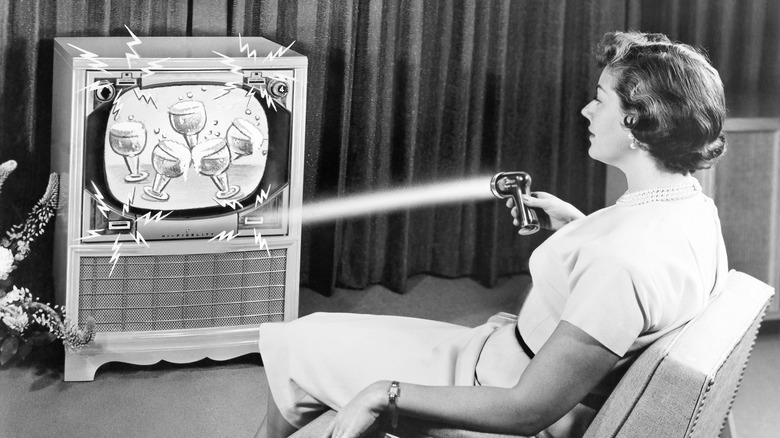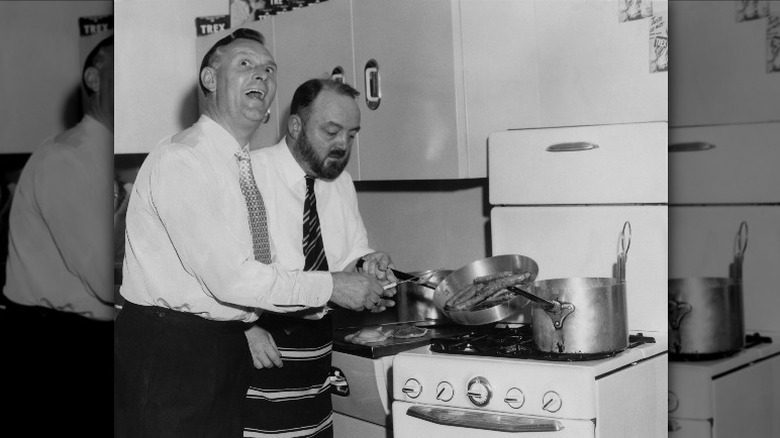The Truth About The First-Ever Cooking Show On TV
When people think of the early days of food television or the first "celebrity chef," Julia Child or James Beard might come to mind. However, neither of these legends was actually the first person to have a cooking show on TV. That claim to fame actually belongs to a name you might not be familiar with.
While the first television signals were transmitted back in 1929, and the National Broadcasting Company launched a series of telecasts in 1939 with coverage of the World's Fair, serious advances in this new technology were delayed as World War II occupied time, money, and other resources, according to PBS. But by the late 1940s, broadcasters in the United States and abroad were creating TV programming, including a creative genre: the cooking show.
While these early programs didn't capture the cooking public's imagination the way Julia Child, "Galloping Gourmet" Graham Kerr, and Jacques Pepin would in the years to follow, these earliest cooking shows established the genre and paved the way for the seemingly endless hours of food programming many of us enjoy today (via Cook's Info). One of these first trailblazers was chef and cookbook author James Beard, who The New Yorker credits for defining "American cuisine." When his show "I Love to Eat" debuted in 1946, he was the first American to demonstrate cooking on television. As trailblazing as Beard and his show were, however, the legendary American chef cannot actually claim to have had the first cooking show.
An English actor was the first TV chef
Beating out James Beard's "I Love to Eat" by just months for the title of "first television cooking show" was BBC's "Cookery," hosted by British actor Philip Harben (pictured, right), according to Guinness World Records. The black-and-white program first aired on June 12, 1946, when the 40-year-old showed viewers how to make lobster vols-au-vents (round, baked puff pastry filled with lobster meat). Viewers were quickly drawn to Harben's effusive and amiable personality, and recognized him by the striped apron he wore tied at his waist.
According to the CBC, Harben didn't launch his career with a passion for cooking. Rather, he was enthralled with this new form of screen-based media, and sought to work in television. He approached the BBC in 1942, telling them he wanted his own show. The network asked if he had any special skills, and he replied that he could "cook a little." Using his charisma, he parlayed his modest abilities into a storied career that ultimately included 20 cookbooks, magazine columns, and even work as a judge in cooking competitions.
Interestingly, in Great Britain (as in the U.S.) post-war food rationing was still in place at the time when "Cookery" debuted. The production team had to keep in mind the limited quantities of food viewers would have available to them, and Harben would even bring in his own allotted foods to use as ingredients for the show, per Guinness. "Cookery" aired regularly on the BBC until 1951.

